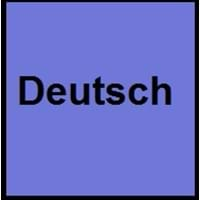German vs Croatian
- One of the large group of Indo-Germanic languages is German.
- The second most popular Germanic language spoken today behind English is German language.
- In croatian language, everywhere there are words without vowels.
- Though croatian language was born in 9th century, the first written document in croatian was in 11th century.
German and Croatian Language History
Comparison of German vs Croatian language history gives us differences between origin of German and Croatian language. History of German language states that this language originated in 6th Century AD whereas history of Croatian language states that this language originated in 9th century. Family of the language also forms a part of history of that language. More on language families of these languages can be found out on German and Croatian Language History.
German and Croatian Greetings
People around the world use different languages to interact with each other. Even if we cannot communicate fluently in any language, it will always be beneficial to know about some of the common greetings or phrases from that language. This is where German and Croatian greetings helps you to understand basic phrases in German and Croatian language. German word for "Hello" is hallo or Croatian word for "Thank You" is hvala. Find more of such common German Greetings and Croatian Greetings. These greetings will help you to be more confident when conversing with natives that speak these languages.
German vs Croatian Difficulty
The German vs Croatian difficulty level basically depends on the number of German Alphabets and Croatian Alphabets. Also the number of vowels and consonants in the language plays an important role in deciding the difficulty level of that language. The important points to be considered when we compare German and Croatian are the origin, speaking countries, language family, different greetings, speaking population of these languages. Want to know in German and Croatian, which language is harder to learn? Time required to learn German is 30 weeks while to learn Croatian time required is 44 weeks.





